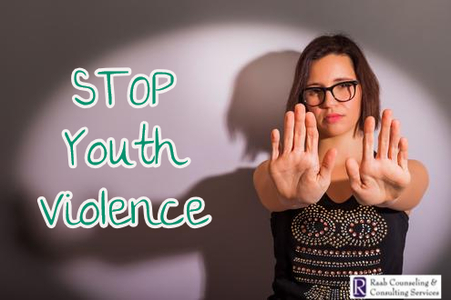 One in four American students will be affected by youth violence this year. (Students Against Violence Everywhere, SAVE) Youth violence includes bullying, school violence, criminal acts, gang violence, teen dating violence and more. These issues can have an immense impact on victims. Teens who have been hurt may respond in a variety of ways including (but not limited to) anger outbursts, depression, anxiety or self-harming behaviors. Now for some good news! The National Criminal Justice Reference Service reports that teen violence has decreased significantly in the last 20 years. This is the result of a lot of hard work by teens, parents, schools, law enforcement and various government and private agencies. While this is fantastic, it does not mean the problem of youth violence has been solved. There is still more work to be done. Wondering how you can help? Here are 5 ways you can help support the anti-youth violence message at home:
Now is a great time to give these a try in honor of National Youth Violence Prevention Week (March 23-27, 2015). Even if you miss the week celebration, there is never a bad time to talk to your kids about youth violence. Bethany Raab is a Licensed Clinical Social Worker in Denver, Colorado.
She is passionate about helping teens and families be happy and healthy!
As an extra, here is an excellent workbook from the Love is Not Abuse Coalition. It will help you talk about dating violence with your teens. It can also be used in conversations with younger children who are not yet dating.
Bethany Raab is a Licensed Clinical Social Worker in Denver, Colorado.
She is passionate about helping teens and families be happy and healthy!
Sometimes, being true to yourself means doing the opposite of what others are doing. This can be really hard to do when classmates and friends are pushing your teen to do something. The teen years are full of finding oneself, while also wanting to fit in with peers. What a complicated time! Here are some ways parents (and other adults) can help teens express their individuality! Allow them to make choices. Even though elementary, middle and high school students are not ready to make many big choices on their own, it is good for them to have some opportunity to choose. Clothes, leisure activities and how they spend their money are some great places to start. Teach your teen that all actions have consequences. Some choices have consequences your teen will not foresee. Other times, they will act despite knowing the consequences. Use these times as teaching moments to help your teen improve their decision making skills. Do not embarrass them on purpose. Publicly criticizing your teen’s decisions is unlikely to be helpful in the long run. If your teen has made a choice that is not acceptable, do your best to address this away from the public eye. Not only will this allow for real conversation about the issue, it will also help your teen feel as though you are on their side, even if you do not always agree. Support them. Sometimes teens will make decisions that make little or no sense to the adults in their life. It is not your job to steer your child away from unpleasant experiences, but to be their cheerleader and help them learn. If your child decides to wear all black for months on end, find out why it appeals to him or her rather than forbidding the choice. If your awkward or uncoordinated teen is certain he wants to try out for the basketball team, encourage him to give his best effort and help him prepare. Not only will your teen feel supported in their decisions, they may just surprise you and themselves in the process! That’s enough from me for now. See how you can help your teen express their individual greatness today! And get a good “opposite day” joke in if you can! :) Bethany Raab is a Licensed Clinical Social Worker in Denver, Colorado.
She is passionate about helping teens and families be happy and healthy!  I often hear this statement from teen clients: “video games are my hobby.” I get it. Video games are fun and popular with teens. However, they aren’t exactly a hobby... The point of having a hobby is for a person to be engaged in an activity they love that can also help them learn new skills and to create healthy relationships with peers and authority figures. Livestrong says it best, “Hobbies provide many mental and physical health benefits, including bolstered optimism, increased creativity and a better ability to deal with stress. Sharing hobbies with others also keeps teens socially engaged with people who have similar interests. The type of hobby a teen is interested in is limited only by the imagination of the person.” Don’t have ideas of what to try? Check out this list. Or this one. For parents: Having a hard time getting your teen interested in developing a hobby?
Remember, this can be a process! Encourage your child to try something a few times before deciding they “hate it.” If one activity is not a good fit, try another! Over time, your child will find something they like, or maybe even love! PS: I chose the picture of a teen piano player because this was one of my hobbies as a teen! Bethany Raab is a Licensed Clinical Social Worker in Denver, Colorado.
She is passionate about helping teens and families be happy and healthy! January 11, 2015 is National Human Trafficking Awareness Day in the United States. To be honest, I didn’t think much about the issue of human trafficking until the last couple of years. Sure, I knew it existed. I assumed that it was a problem in foreign countries, not here in the United States. Boy, was I wrong. Human trafficking is a $5-7 billion industry in the U.S. alone. It impacts 21 million victims worldwide, 1.5 million of which are Americans. (UNICEF) Just so we’re all on the same page, here is the formal definition of Human Trafficking from the Trafficking Victims Protection Act of 2000:
Basically, “Human trafficking is a form of modern-day slavery.” (Trafficking Resource Center) Scary, huh?
It is important for parents and community members to be aware of risk factors that make teenagers vulnerable to traffickers. Here are a few signs that your teen could be at risk: Teens living on the streets are prime targets for human traffickers. They tend to have a limited support system and they often hang out in high risk areas such as bus or train stations, parks and shelters. Family discord. Teens from chaotic households often seek support in inappropriate places. Older friends or strangers who give gifts or make extraordinary promises. Does your teen have older friends that you don’t know? Have they received unexpected or extravagant gifts from someone? This deserves your attention. Youth with a history of abuse or neglect may be more vulnerable to traffickers. So what can you do? Talk to your children. Connect with them. Spend time with them. Know who their friends are and where they hang out. Be engaged with your children! Seek Help. If your teen has been a victim of some sort of trauma, consider seeking help for them in the form of counseling or a support group. Their pediatrician is a great place to start in order to get connected with the right services. Reduce Conflict. If your family is riddled with conflict, take steps to work on the problem. Identify causes and implement solutions. Counseling can be helpful with this process. Contact the National Human Trafficking Resource Center. Call 1-888-373-7888 or text INFO or HELP to BeFree (233733). They are available to help victims, families and community members at any time. Let's work together to protect our communities and end human trafficking! Bethany Raab is a Licensed Clinical Social Worker in Denver, Colorado.
She is passionate about helping teens and families be happy and healthy!
My social work journey started when I was a leader for the middle school youth group at my church as a senior in high school. During my college years, I worked in a youth center in Chicago for one summer. Upon returning to school in South Dakota, I worked with teens and families in a residential treatment center and a domestic violence shelter. All of these experiences set the stage for my social work career. When I finished my graduate degree in Denver, I couldn’t wait to get a job working with teens and families! Since then, I have worked with teenagers in residential treatment, day treatment, outpatient counseling and inpatient hospital settings. By now, you have probably guessed that my blog will now focus on teenagers and families. I couldn’t be happier to write about adolescents after spending the last 15 years working with them! I will write about common issues related to teens and families. I will occasionally reference current research or events happening in the world as they relate to teens and families. My hope is that you will find my blog to be helpful and enjoyable to read. I would love to receive input on topics you would like to see on my blog. I appreciate comments and shares if an article resonates with you. Thanks for reading! Happy New Year! Bethany Raab is a Licensed Clinical Social Worker in Denver, Colorado.
She is passionate about helping teens and families be happy and healthy! This is one of my favorite quotes. I jotted it down almost 10 years ago and it has been hanging on my refrigerator on the same scrap of paper ever since. It is meant to be a reminder for me to express kindness toward others on a daily basis. Here are my musings about the quote and how I think it might apply to you! For Children and Teens What might schools be like if students exhibited these qualities toward their peers and teachers? How much more enjoyable could sports and playtime be for children? This concept is so important for children and teens to learn as they grow and develop. But how do children learn to express kindness? Please read on! For Parents Children learn how to exhibit kindness to others by the example modeled for them at home and in the community. The way you treat the store clerk, other drivers and your family will influence how your children interact with others. Please understand: I am not asking you or your child to be perfect. Everyone loses their temper and says things they do not mean. Use these times as a learning experience for yourself and a teaching moment for your child. Apologizing and exhibiting grace for others’ mistakes are wonderful behaviors to model for your children. For Anyone This concept is not only beneficial for families. I find that my own professional and personal interactions are better and more genuine when I try to be kind to others. My days tend to go smoother even if others do not extend kindness to me. Don’t get me wrong, try as I might, I fail miserably sometimes. The best thing we can all do on those days is to keep trying, and apologize when needed. What is one way you can work to show kindness to others this week? I’ll be working on this with you, especially when I am driving. Let’s do this together! Bethany Raab is a Licensed Clinical Social Worker in Denver, Colorado.
Every parent wants their daughter to feel good about herself. We live in a society that places increasing focus on women's bodies. It is important to be mindful about social pressures in your interactions with your daughter. Use positive language and help her feel confident! See below for 10 specific ways to help your daughter love her body! This post originally appeared on the Wasatch Family Therapy Blog.
Welcome to the latest follow up article to my Important New Year's Resolutions for Parents of Teens blog! Here you will find information on the benefits of getting teens involved in their community and ideas about how to get your family started!  Teens who are involved in community activities experience many benefits! Here are just a few: Investment in their community. Teens are able to use their time and talents to engage with others. They may also gain a better understanding of people who are different from them. Role models. Coaches, volunteer supervisors and mentors can provide a safe, positive example to teens. Self confidence. Teens' confidence in themselves will soar as they learn new skills, improve their ability to solve problems and develop leadership skills. Additionally, seeing that they make a difference can be deeply gratifying. Good work ethic. The University of Nevada Extension Office states, "young people involved in community service are more likely to have a strong work ethic as an adult." They learn how to be accountable, make and keep commitments and work well with others. Some pointers as you begin this journey: Find out what activities interest your child. Talk to them and allow them to drive the decision-making process. The more empowered your teen feels from the beginning, the more invested they will be in the -chosen activity later! For indecisive teens, parents may need to be more involved in the decision-making and planning process. Consider your teen. Take their personality into consideration. Not every child will be comfortable playing sports or stepping right into a leadership role. Help them find something that will build upon their strengths. Help them get started. Some teens may be more comfortable starting an activity with the presence of their family. Allowing them to invite a friend along may also boost their confidence heading into a new experience! Consider and manage the risks. Do your research on the organization and meet the adults who will be supervising, leading or coaching your child. Also, talk with your child about their experience on a regular basis to ensure they are safe and comfortable in their chosen activity. Finally, here are a few options to consider with your teen: Sports teams and lessons. Check out your teen's school, the YMCA or local recreation centers. Academic clubs. Mentoring programs. Hobby-based groups. Think chess club, music and theater. Community organizations like 4-H, Girl Scouts and Boy Scouts. Church youth groups. Volunteer opportunities. Hospitals, food banks and animal shelters are often looking for volunteer help. Picture from Flickr. Some rights reserved by Rob Gallop. Bethany Raab is a Licensed Clinical Social Worker in Denver, Colorado.
This week I want to address the second topic covered in my New Years Resolutions blog last month: Sexting. Just to be clear, “sexting” is a combination of the words “sex” and “texting.” It is defined by Urban Dictionary “the act of text messaging someone in the hopes of having a sexual encounter with them later; initially casual, transitioning into highly suggestive and even sexually explicit.” These messages may also include pictures of one self. The Merriam Webster Dictionary includes a similar definition.  It is important for parents and teens to be aware of the risks of sexting behavior. A 2012 study cites states “among girls, the use of sexting behaviors appears to coincide with much higher engagement in risky sex behaviors.” The risk is not limited to teen girls. Did you know that over 75% of teens who are propositioned to have sex via a text, actually end up having sexual intercourse? You are likely already aware of the risks sexual activity including teen pregnancy, contracting HIV or a sexually transmitted disease. Sexting can also have legal ramifications. For example, a teen girl sending a sexually explicit picture of herself to her boyfriend is not illegal (though not a good idea). However, the boyfriend then sharing the picture with one or more people can lead to big problems. This can be considered distribution of child pornography and can carry a prison sentence and the sender being required to register as a sex offender. Psychology Today published an article about the legal concerns with sexting. Here are some suggestions for parents:
Image from Flickr. Some rights reserved by Jhaymesisviphotography. Bethany Raab is a Licensed Clinical Social Worker in Denver, Colorado.
|
Welcome!
Every blog post you see on this page is written especially for teens and their parents! Like it? Pin it!
Follow me!
Categories
All
|
||||||||||||||
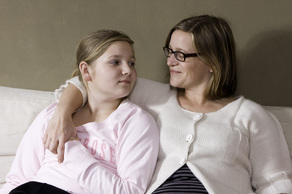
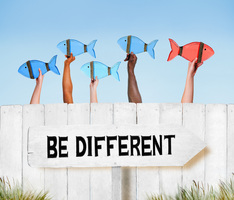
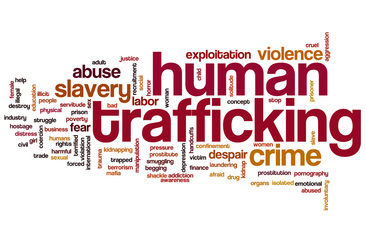

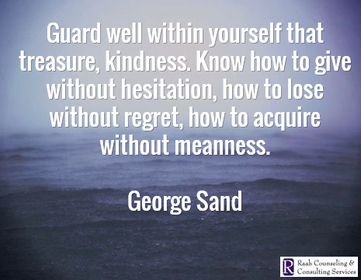

 RSS Feed
RSS Feed